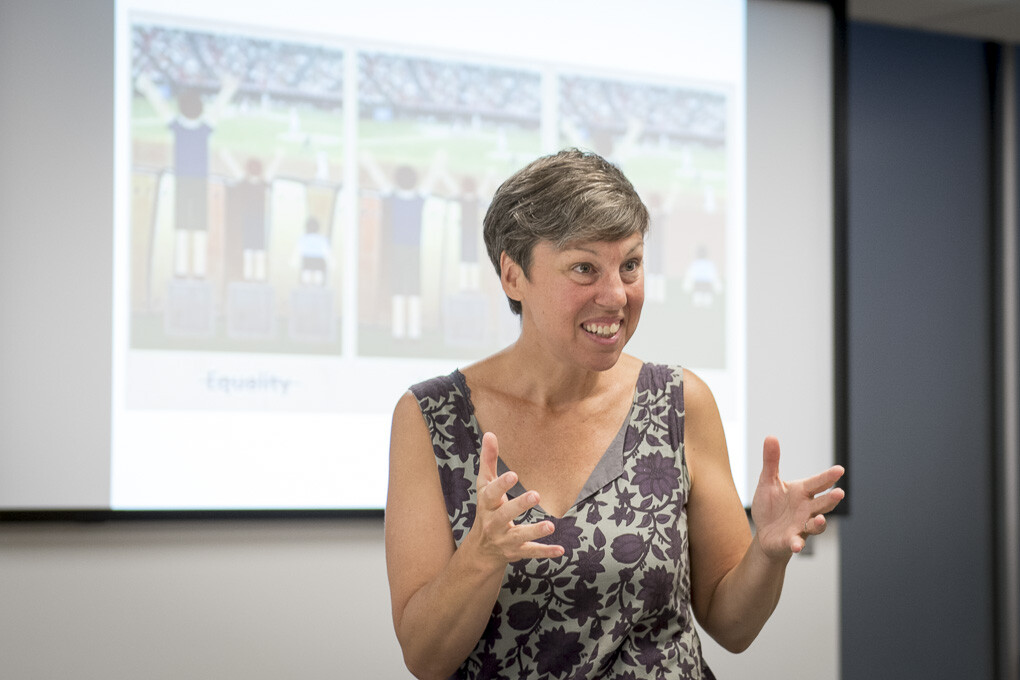Mobile Menu
- Education
- Research
-
Students
- High School Outreach
- Undergraduate & Beyond: Community of Support
- Current Students
- Faculty & Staff
- Alumni
- News & Events
- Giving
- About

Erin Howe
Dismantling the social structures that give advantage (or privilege) to some and disadvantage to others is complicated work. But for Professor Stephanie Nixon, it is a necessary and ongoing part of working toward health equity for all people.
On April 22, Nixon will lead a new, interactive one-day continuing education course called Privilege 101: Privilege and Oppression in the Context of Health Equity. Offered jointly by the Department of Physical Therapy and the International Centre for Disability and Rehabilitation (ICDR), the workshop will give participants an opportunity to explore privilege and oppression and their impact on health.
In addition to learning new facts, Nixon says the process requires people to critically reflect on who they are and how they see the world. Then comes the work of ‘unlearning’ decades of prior assumptions about the way the world works.
“My experience has been these concepts aren’t well understood within the health sector,” says Nixon, an associate professor in the Department of Physical Therapy and Director of the ICDR. “There are people in health care who may be driven by a social justice urge and a deeply entrenched commitment to health equity. But, in my experience, often our capacity to analyse how power operates in society to shape health equity is actually quite limited.”
According to Nixon, privilege — or the lack thereof — is well demonstrated in epidemiological data about health disparities. People with certain circumstances, like immigration status, ethnicity, gender or disability for example, are likely to experience better or worse health because of the social structures they live within.
“These differences in health don’t reflect people’s different behavioural choices, but rather broad social patterns that are beyond individual level forces,” says Nixon, who is also cross-appointed to the Rehabilitation Sciences Institute and the Dalla Lana School of Public Health. “If you’re disadvantaged by a social structure, it is usually clear as day to you. But if you receive unearned advantage (or privilege) from this same structure, it is common to be oblivious to the free lift. This workshop aims to help us all become less oblivious.”
The workshop is designed for clinicians, health professions educators, health researchers and people working in health policy. From students to senior leaders, people at all stages of their careers are welcome to take part.
To register, please click here.